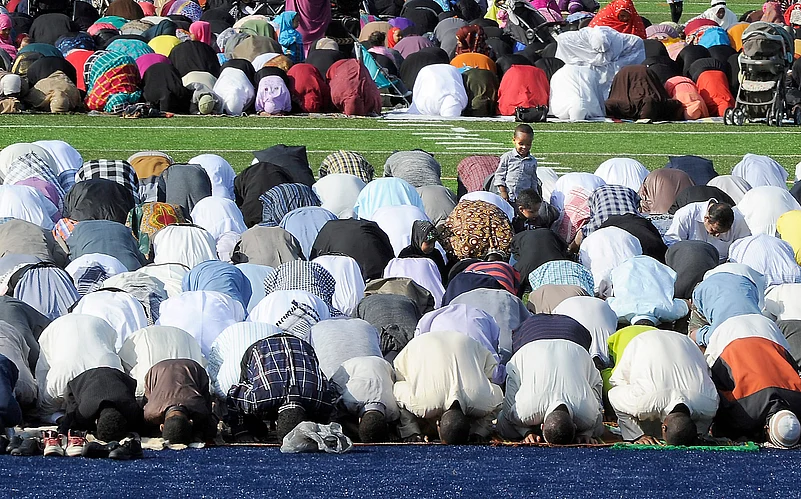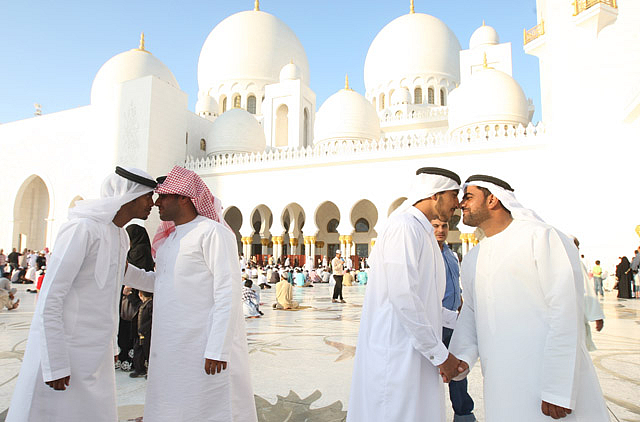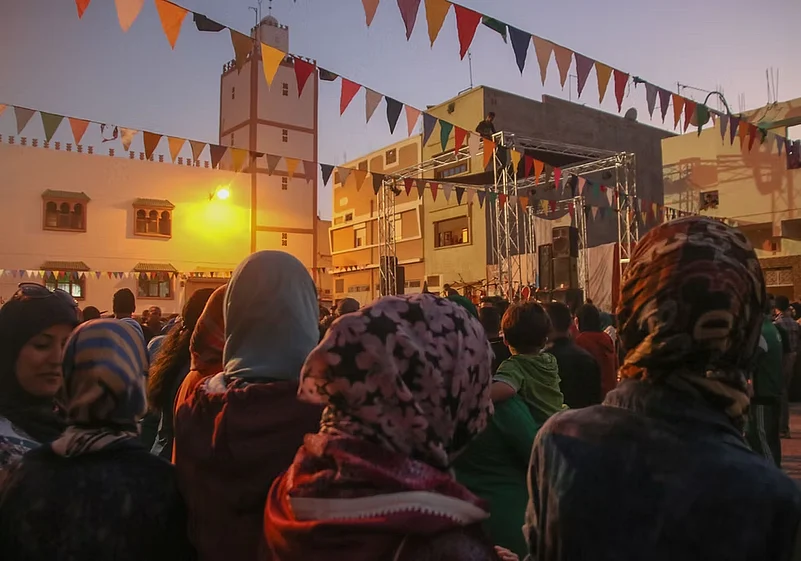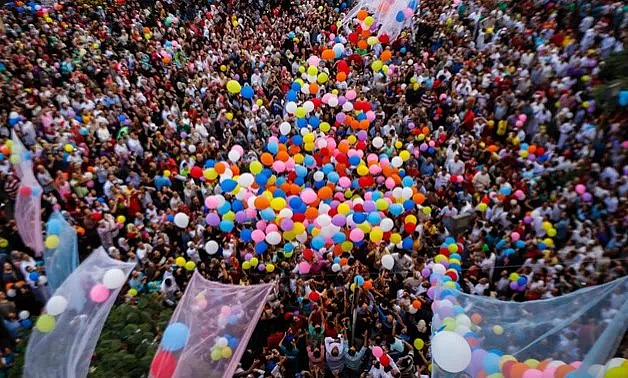Eid-ul-Fitr, also known as the “Festival of Breaking the Fast,” is one of the most significant Islamic celebrations Muslims observe worldwide. It marks the end of Ramadan, the holy month of fasting, and is a time of joy, gratitude, and community bonding. While the core essence of Eid remains the same—prayers, charity, and feasting—each country and culture brings its unique customs and traditions to the festival. Let's explore how different regions celebrate Eid-ul-Fitr with distinctive rituals and festivities.
Know the unique Eid tradition around the world
Turkey

In Turkey, Eid al-Fitr, known as Ramazan Bayramı or Şeker Bayramı (Candy Feast), is a joyous three-day national holiday. Celebrations begin with early morning prayers at mosques, followed by festive breakfasts with family and friends. A key tradition is visiting relatives, where younger members kiss the hands of elders as a sign of respect, receiving sweets, gifts, and holiday money in return. Homes are filled with the aroma of traditional sweets like baklava, and people dress in their finest clothes. The holiday is a time for strengthening family bonds, sharing meals, and spreading goodwill throughout communities.
Iceland

Iceland's Ramadan and Eid celebrations are unlike any other place in the globe. Many Muslims fast for up to 22 hours every day during Ramadan due to the nation's midnight sun phenomena. Although they can choose to break their fast according to Saudi Arabia's or the closest country's sunrise and sunset times, many choose to do so when the sun rises over the Icelandic horizon. The celebrations of Eid al-Fitr are magical because of the extended fasting hours. To commemorate this holy day, guests arrive laden with food influenced by Indonesian, Egyptian, and Eritrean cuisines, and the festivities are held in one of Reykjavik's few mosques.
Malaysia

In Malaysia, Eid is known as "Hari Raya Aidilfitri." The concept of "Open House" is a unique tradition where families welcome friends, neighbors, and even strangers to share meals. Traditional Malay delicacies such as Rendang (spicy beef dish), Lemang (glutinous rice cooked in bamboo), and Satay are commonly enjoyed. People dress in traditional attire like Baju Kurung and Baju Melayu, and colorful decorations brighten homes and streets..
Nigeria

In Nigeria, Eid celebrations are vibrant, with special processions known as the Durbar Festival. Horse riders in elaborate costumes parade through the streets, and rulers of various emirates hold grand feasts. Families gather for prayers and enjoy Nigerian delicacies like Jollof Rice, Suya (spiced grilled meat), and Fried Plantains. Generosity is emphasized, with people offering food and gifts to the less fortunate
Morocco

In Morocco, Eid celebrations, particularly Eid al-Adha, are deeply rooted in tradition and community. Celebrations commence with early morning prayers at mosques or open-air prayer spaces (M'ssalas), where families, adorned in traditional attire, gather in unity. Moroccan pancakes and their renowned mint tea are morning staples. Following the prayers, the ritual of animal sacrifice (Qurbani) takes place, with the meat distributed among family, friends, and those in need, embodying the spirit of generosity. Festive meals featuring traditional Moroccan cuisine, such as tagines and couscous, are shared among loved ones. Visiting relatives and neighbors, exchanging greetings, and children receiving gifts and new clothes are also integral parts of the celebration, strengthening community bonds.
India

Eid-ul-Fitr in India is marked by grand prayers at mosques like Jama Masjid in Delhi and Mecca Masjid in Hyderabad. Families prepare special dishes such as Biryani, Sewaiyan (sweet vermicelli), and kebabs. A significant tradition is visiting elders and seeking their blessings, while children eagerly await their "Eidi." Street markets, especially in Old Delhi and Lucknow, buzz with activity, selling clothes, perfumes, and festive treats.
Indonesia

In Indonesia, Eid al-Fitr, widely known as Lebaran, is a deeply cherished national holiday marked by a strong emphasis on family, forgiveness, and community. The celebration begins with special morning prayers at mosques or open spaces, followed by gatherings where families and friends seek forgiveness from one another, a tradition called "sungkem." A significant aspect of Lebaran is "mudik," the mass homecoming where millions travel to their ancestral villages to reunite with loved ones. Festive meals featuring traditional dishes like "ketupat" (rice cakes) and "opor ayam" (chicken in coconut milk) are shared, and it's also a time for giving "zakat al-fitr" (charity) to those in need. Overall, Lebaran in Indonesia is a vibrant and joyous occasion, blending religious observance with strong cultural traditions.
Egypt

In Egypt, Eid celebrations are a vibrant and joyous occasion, deeply rooted in tradition. Eid al-Fitr, marking the end of Ramadan, is particularly festive. The day begins with morning Eid prayers at mosques or large public spaces, followed by gatherings of families and friends. A key element of the celebration is the sharing of festive meals, with "kahk," sugar-dusted cookies, being a beloved staple. Children receive "Eidyah," gifts of money, and families often venture out to parks, the Nile River, or other public spaces to enjoy the holiday atmosphere. It's a time for renewing bonds, expressing goodwill, and sharing the joy of the holiday with loved ones.
As we approach Eid-ul-Fitr 2025, it's important to remember that the essence of this festival lies in its ability to unite Muslims worldwide in a spirit of joy, gratitude, and compassion. While the specific traditions may vary from region to region, the underlying message of Eid-ul-Fitr remains constant: a celebration of faith, family, and community. By understanding and appreciating the diverse traditions that shape Eid celebrations across the globe, we can gain a deeper understanding of the richness and beauty of Islamic culture and foster greater unity and understanding among people of all backgrounds. As the moon is sighted in 2025, let us embrace the spirit of Eid-ul-Fitr and celebrate the bonds that connect us all.
Follow 바카라 Experiences:
| | |















